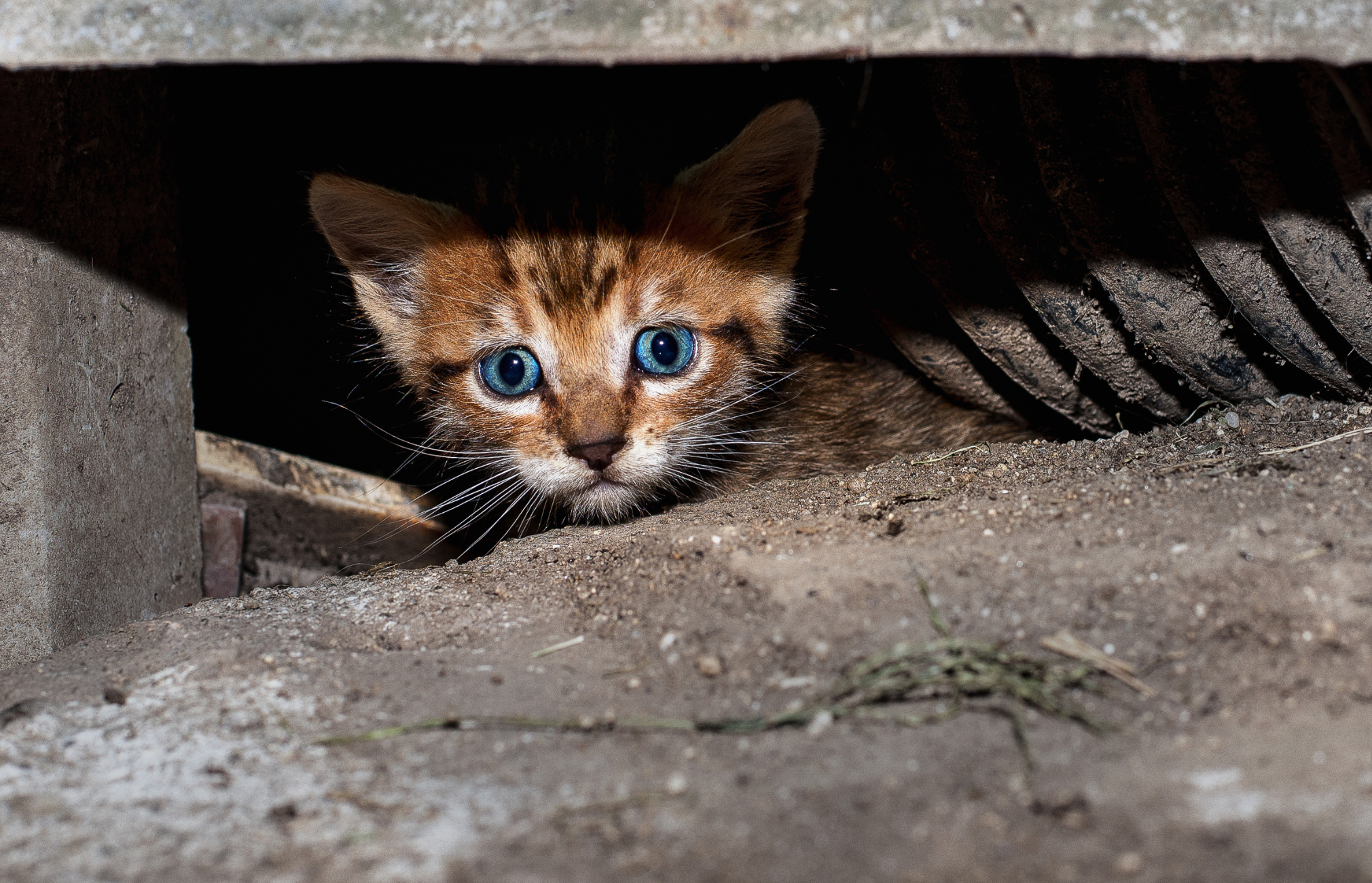Just like their owners, cats sometimes experience anxiety. It’s normal for a cat to become startled occasionally, prompting an adorable jump, but if a cat is struggling with chronic stress, it’s anything but cute. Cat owners can read on to find out about the signs and symptoms of cat anxiety and how to treat it to help their furry friends get back to living their best lives.

What Causes Cat Anxiety?
Stress that originates from external sources is a defense mechanism against danger. Like humans, cats experience anxiety when they perceive a threat. However, some cats can become chronically stressed and exhibit fear responses with little to no visible provocation. Pet owners will need to observe their cats and try to understand the underlying physical or psychological factors at play before they can come up with a solution.
Pain or Illness
Chronic pain can lead cats to develop anxious behaviors like hiding beneath furniture or avoiding the litter box. In older cats, joint pain is a common culprit. Cats experiencing nervous system problems, infectious diseases, or exposure to toxins may also become more anxious. When this is the case, the solution is simple. Pet owners need to take their animals to the vet to seek treatment for the underlying physical problem behind their anxiety.
Psychological Trauma
Many pet owners choose to adopt cats from local shelters or rescue organizations. This is a fantastic way to help animals that would otherwise face short, distressing lives, but it means there’s no way to know what the cat has been through before being adopted. Psychological triggers like traumatic experiences, lack of socialization, and neglect or abuse on behalf of a previous owner can all create problems with chronic anxiety.
Separation Anxiety
Cat separation anxiety is one of the most common forms of chronic stress in cats. It is especially common in animals with a history of abandonment, especially when they have been rehomed multiple times. Some cats only experience separation anxiety when their owners leave home, while others may become anxious even when their owners walk into another room. Cat anxiety medication can help with this issue.
Genetic Predisposition
Some cats are genetically predisposed to psychological issues like obsessive-compulsive disorder (OCD), which can be both a contributing factor and a result of chronic stress disorders. Siamese cats and other Asian breeds are prone to performing the unhealthy, exaggerated, and repetitive behaviors associated with OCD. When pet owners attempt to soothe seriously stressed cats after witnessing these behaviors, they can actually reinforce them. It’s much better to address the animal’s anxiety than it is to reinforce negative coping behaviors.
Signs and Symptoms of Cat Anxiety
The first step toward helping an anxious cat feel better is to identify anxious behaviors. Cat owners can then visit their veterinarians to rule out physical triggers and get advice about how to help a cat with anxiety.
Since cats can’t just tell their owners when something is wrong, owners should be on the lookout for the following cat anxiety symptoms:
- Hiding beneath furniture
- Withdrawing from social situations
- Trembling
- Lethargy
- Restlessness or constant pacing
- Loss of appetite and subsequent weight loss
- Excessive or repetitive vocalizations
- Escape attempts
- Destructive behavior
- Aggression
- Refusal to use the litter box
- Diarrhea
- Obsessive grooming, which can cause sores or lesions
Cat owners should also take note of when these behaviors occur, especially if they do not believe that a physical trigger is to blame. This will give them an idea of what is causing the cat undue stress. Identifying psychological triggers can help pet parents better understand their cats and figure out how to help them. There are also products available, such as Pawtect® Pads, available to help cat owners deal with symptoms of stress like urinating outside the litter box.
How to Settle an Anxious Cat
Dealing with chronic stress in a pet can make cat owners almost as anxious as their animals. Pet owners want what’s best for their furry friends, though, which means they need to prioritize treating the underlying problem with appropriate changes, possibly including anxiety meds for cats, not fixating on unwanted behaviors.
Avoid Punishment
Never punish an anxious cat for unwanted behaviors. This increases the animal’s fear and can make him or her afraid of the owner, which will only exacerbate the problem. Some of the behaviors associated with chronic stress can be unpleasant to deal with, but pet parents should remain calm and ensure that they have the best interests of their furry friends in mind. Instead of scolding a cat for refusing to use the litter box, for example, think about buying cat diapers to make dealing with his or her incontinence easier while treating the underlying anxiety.
Rule Out Medical Problems
If a cat is experiencing frequent or constant anxiety, it’s important to rule out physical causes. Pain, illness, and exposure to toxins can all cause stress responses in kittens and adult cats of all ages. Cats tend to hide their pain, so owners may not even realize what is going on, but a veterinarian can run blood panels and other tests to rule out underlying medical conditions. If the animal is in pain, all an owner may need to do to restore the cat to his or her normal self is to treat the underlying problem. If this is not the case, the veterinarian may be able to recommend other ways to help.
Consult an Animal Behaviorist
An animal behaviorist can examine the cat to help determine anxiety triggers and diagnose underlying psychological problems. He or she can also offer advice about behavioral conditioning or counter-conditioning such as desensitization, safe exposure, and behavioral replacements. The goal of animal behavioral therapy is not just to remove unwanted behaviors. It is to teach stressed cats that they are safe in their environments.
The Bottom Line
Unless it’s being caused by an acute physical problem, cat anxiety won’t get better by itself. Unwanted behaviors will only become more pronounced over time, and chronic stress will begin to impact the animal’s physical health. Don’t get discouraged, though. With patience, love, and attention, most cats experiencing chronic stress can make full recoveries and go on to live happy, fulfilling lives with their human families.









